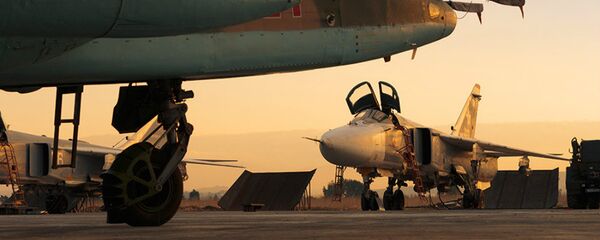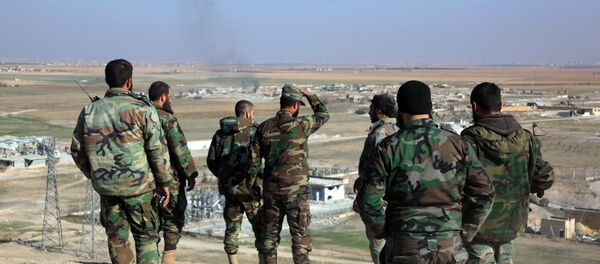The speed of the Syrian army's recent gains in Aleppo are impressive, considering the urban battleground.
At the request of the Syrian government, the Russian Air Force began conducting military operations in Syria in September 2015. Shortly before the arrival of Russian warplanes in Syria, the Syrian army suffered a string of defeats, most notably in Idlib province.
Given the deployment of Russian military assets to Syria, it is virtually impossible for any opposing group to retake all of Syria. The provinces of Latakia and Tartus are considered to be the safest areas in Syria, due to the presence of Russian facilities.
Pre-war, these provinces were primarily populated with Alawites, as well as many Christians, in addition to a sizeable Sunni community. As of November 2016, more than 1.5 million internally displaced Syrians, mainly Sunnis from Aleppo, live in Latakia.
Based on Donald Trump's previous comments and narrative, many expect him to cut-off support to opposition forces in Syria, and potentially cooperate with the Syrian government to tackle Islamist groups in Syria.
Furthermore, Russia has placed its advanced S-300 and S-400 SAM systems in Syria, giving them the power to down enemy aircraft. Therefore, it is unlikely that the armed opposition will receive any direct military support (against pro-government forces) from their allies, for a no-fly zone, for example.
Victory in Aleppo is crucial to the long-term success of the Syrian Army's operations, as it will serve as a huge morale boost and will allow thousands of pro-government fighters to be deployed elsewhere.
Based on recent developments, it is clear that Assad's forces possess the advantage. Their advantage could potentially be further accentuated by the involvement of Iraqi militias in Syria.
Earlier this month, Hadi al-Amiri, a leader in the Iraqi PMU, said that President Assad has requested support from his group.
In the past year, many countries have changed their position on the Syrian crisis in favor of Assad. For example, in December 2015, the Pakistani Foreign Minister said that his country opposes any attempt to topple Assad.
More recently, the president of Egypt, Abdel Fattah al-Sissi, expressed his support for the Syrian government.
"Our priority is to support national armies, for example in Libya to exert control over Libya territory and deal with extremist elements. The same with Syria and Iraq," al-Sissi said.
Syria and Egypt were part of a political union from 1958 until 1961, known as the United Arab Republic.
Although the war is far from over, it seems highly probable that the Syrian government will emerge victorious, though it remains unclear exactly when they will regain control of the entirety of the country.
The views expressed in this article are solely those of the author and do not necessarily reflect the official position of Sputnik.






